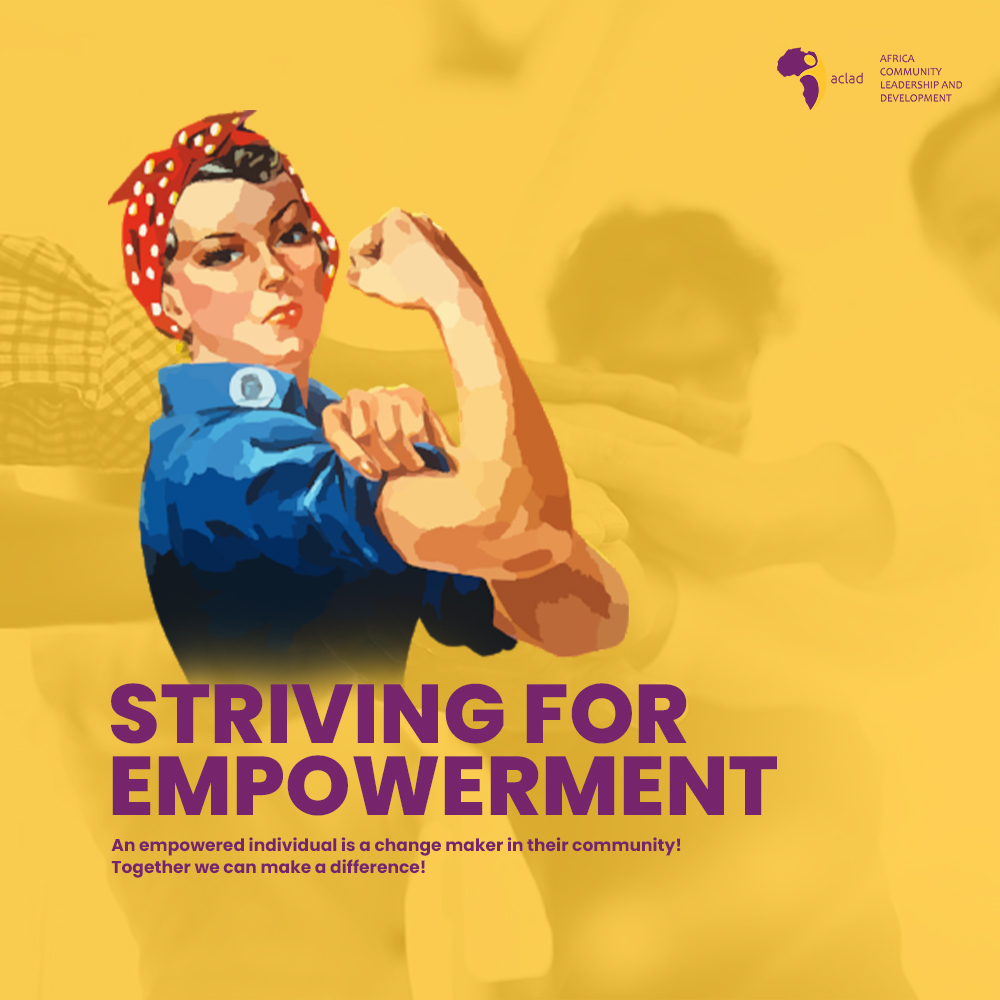Striving for empowerment

According to Wallerstein (1992)[1], empowerment is a social action process that promotes the participation of people, organizations and communities towards the goals of increased individual and community control, political efficacy, improved quality of community life and social justice. Empowerment can exist at three highly interactive levels, personal, small group and community levels. At the personal level, empowerment is the experience of gaining an increasing control and influence in daily life and community participation (Keiffer, 1984[2]). At the small group level, empowerment involves the shared experience, analysis and influence of groups on their own efforts (Presby, Wandersman, Florin, Rich, & Chavis, 1990[3]). At the community level, empowerment revolves around the utilization of both resources and strategies to enhance community control (Labonte, 1989[4]).
At ACLAD, we strive to empower women through sustainable community engagement processes which are essential for ownership and good outcomes of the projects. Through our piggery project, we are enhancing livelihoods of women’s groups in Western Kenya. We have also seen widows working collectively to initiate pig farming through our “a gift that keeps on giving!” and seen women empowered through table banking and conservation agriculture. The communities we engage with are empowered with skills in conservation agriculture and get certified local vegetable seeds to kick start kitchen gardens and income generating projects.
We also strive to empower adolescents through our Chagua Maisha (Choose Life) life skills program, which is a peer based intervention designed to make learning fun, engaging and dynamic. It uses an easy-to-follow format with helpful reminders and notes. To date, the program has reached over 2000 youth. In addition, in partnership with Gynocare Women’s and Fistula Hospital, Reintegration program in Eldoret, Kenya, we are empowering girls with life skills as well as engaging social workers at the facility in Training of Trainers sessions which will result in enhanced mentorship and counselling for adolescent girls.
To be a part of our empowerment efforts, don’t hesitate to contact us on +254 701 568 100 or send us an email at info@aclad-hq.org. An empowered individual is a change maker in their community! Together we can make a difference!
Catherine Muteithia
ACLAD Media Consultant
[1] Wallerstein, N. (1992). Powerlessness, empowerment and health: Implications for health promotion programs. American Journal of Health Promotion, 6(3), 197-205.
[2] Keiffer, C. (1984). Citizen empowerment: A developmental perspective. Prevention in Human Services, 3(16), 9-35.
[3] Presby, J., Wandersman, A., Florin, P., Rich, R., & Chavis, D. (1990). Benefits, costs, incentive management and particpation in voluntary organizations: A means to understanding and promoting empowerment. American Journal of Community Psychology, 18(1), 117-148.
[4] Labonte, R. (1989). Community empowerment: The need for political analysis. Canadian Journal of Public Health, 80(2), 87-88.
